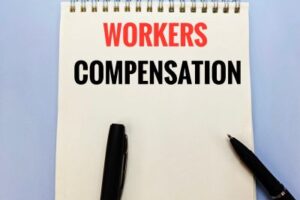Inmate’s Job Claim Outside Scope of NJ Workers’ Compensation

When it comes to workplace injuries, you just never know what the court will decide. However, if you try to use the state’s workers’ compensation law for non-injury claims, you will get your claim denied, as seen in this recent case in New Jersey.
In a recent decision from New Jersey Department of Corrections (DOC), the court rejected the workers’ compensation claim of an inmate who worked as a barber in a state prison. According to the case, the inmate was earning $2.50 per day in a unit barber role and was offered a provisional position in the officers’ barbershop, which paid $6 per day. After he filed a grievance and was terminated from that role, he argued the DOC owed him the higher pay under the state’s New Jersey Workers’ Compensation Act.
The court noted that the Workers’ Compensation Act applies to injuries arising out of and in the course of employment. It does not apply to disputes over wages or assignment eligibility. Because the inmate’s grievance did not arise from a work-related injury, his claim fell outside the statute’s scope. The court further held that the inmate did not have a protected liberty interest in the provisional officers’ barbershop assignment, meaning the DOC’s decision to terminate him did not trigger any sort of compensable employment rights.
The bottom line: In New Jersey, an inmate performing labor in a correctional facility is generally not considered an employee for purposes of the workers’ compensation law. Therefore, they cannot rely on that statute for wage-related disputes.
What Does Workers’ Compensation Cover?
The workers’ compensation program is run by each state, so coverage will vary. In New Jersey, workers’ compensation provides benefits to employees who are injured or become ill due to their job. Coverage includes:
- Medical benefits: All necessary and reasonable medical treatment, prescriptions, and hospital services related to the work injury are covered.
- Temporary total disability benefits: If an injured worker cannot return to work for more than seven days, they may receive wage replacement, which is usually 70% of their average weekly wage, up to a state-set maximum.
- Permanent partial disability benefits: If an injury causes lasting impairment but the employee can still work in some capacity, they may receive benefits based on the severity and body part affected.
- Permanent total disability benefits: For workers permanently unable to return to any form of gainful employment, benefits may continue for life, subject to periodic reviews.
- Death benefits: If a work-related injury or illness results in death, dependents (such as a spouse or children) may receive weekly payments, plus funeral expenses.
- Vocational rehabilitation: In some cases, injured workers may receive job retraining or placement assistance if they cannot return to their previous occupation.
Contact a New Jersey Personal Injury Lawyer Today
Workers’ compensation covers many events related to workplace injuries, but general grievances and complaints are not typically covered.
Have questions about workplace laws? A Morristown workers’ compensation attorney from The Law Offices of Michael P. Burakoff can provide you with the help you need. Schedule a consultation with our office today by filling out the online form or calling (973) 455-1567.
Source:
workerscompensation.com/daily-headlines/new-jersey-inmates-workers-compensation-claim-fails-to-meet-cut-in-court/

